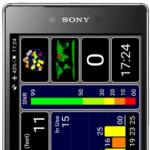Technical regulations of Russia, customs union, eurase
The first technical regulation was adopted in 2005. At that time, this legal act was considered an innovation that replaced the obsolete GOST. Today, more than 20 regulations have been put into effect regulating the production and circulation of different types products, services.
The definition of technical regulations is given in the Federal Law "On Technical Regulation" - these are documents that establish requirements for such objects technical regulation:
- products;
- construction objects;
- production processes;
- processes of use, storage, transportation, sale, disposal of products;
- services and processes related to the provision of various services, the performance of work.
The requirements that are in the technical regulations are mandatory for business entities Russian Federation. This is explained by the fact that technical regulations are adopted by international treaties of the Russian Federation, and are ratified by federal laws, presidential decrees, government decrees.
Why are technical regulations adopted?
Technical regulations are being developed and adopted to establish uniform requirements on the territory of the Russian Federation that can ensure the release into circulation of high-quality and safe products for:
- consumer;
- environment;
- property individuals who are citizens of the Russian Federation;
- property of legal entities;
- municipal property.
Technical regulations provide biological, mechanical, industrial, chemical, fire, thermal, radiation, nuclear, electrical safety, radiation safety, explosion safety, uniformity of measurements, electromagnetic compatibility of instruments and equipment.
Due to the established obligation to comply with the requirements of technical regulations, misleading consumers can be prevented.
According to the Law "On Technical Regulation", it is impossible to adopt technical regulations for other purposes.
In addition to the fact that technical regulations establish requirements for products manufactured in Russia, they may contain phyto- and veterinary-sanitary measures applicable to foreign-made products. This is necessary to fulfill the goals and objectives of the technical regulations described above.
In addition to national technical regulations, technical regulations of the Customs Union are being developed and implemented. These documents regulate the relations of the countries that form the community in the field of production, release into circulation, sale, and labeling of products.
Control over compliance with the requirements of technical regulations
Establishing requirements always requires monitoring their implementation. Therefore, in Russia there is a system of certification and declaration of conformity. It can be mandatory or voluntary, it involves product testing, documentary examination, production verification. The specifics of the compliance check are described in the technical regulations.
Today, 95% of manufacturers, suppliers, incl. importers of products undergo conformity certification. In the eyes of consumers, products for which there is a document confirming compliance are an order of magnitude better than those whose delivery is not accompanied by such documents.
Current technical regulations
On the site site you can get acquainted with the technical regulations in force in Russia and on the territory of the Customs Union.
Federal Law No. 184 "On Technical Regulation" defines the Technical Regulations. This may be one of the following official documents that contain mandatory requirements for execution and application to any objects of technical regulation:
- adopted by an international treaty of the Russian Federation, which is subject to ratification on the basis of the procedure established by the legislation of Russia;
- based on international treaty the Russian Federation, which was ratified on the basis of the procedure established by the legislation of Russia;
- adopted by the relevant federal law RF;
- adopted by the corresponding decree of the President of the Russian Federation;
- adopted by the relevant resolution of the Government of the Russian Federation;
- normative legal act for technical regulation federal body executive power.
Technical regulations can be directed to the following objects of technical regulation: products, works, processes, manufacturing, installation, construction, storage, adjustment, sale, operation, transportation, disposal and others.
The requirements contained in the TR are mandatory for all participants in the Russian market of goods and services. Regulations are adopted for the purposes specified by law, namely:
- to protect the health or life of citizens, property various persons and states;
- to protect the life or health of animals and plants;
- for environmental protection;
- to prevent actions that mislead consumers;
- to ensure resource saving and energy efficiency.
Technical regulations include sections on the basis of which the objects of technical regulation are subject to assessment of compliance with the established regulatory document at least necessary requirements safety and quality. If the Technical Regulations do not establish any requirements for the object of regulation, then they are not binding.
On the basis of the developed plan for the development and approval of the Technical Regulations, about 20 TRs of the Russian Federation were put into effect by 2012, which cover a wide variety of areas of activity, for example:
- food products (milk and dairy products, textile products, fat and oil-containing products, vegetable and fruit juices and juice-containing products, and others);
- road transport and its safety, diesel and gasoline fuel for vehicles, aviation gasoline and other varieties;
- air emissions harmful substances car engines;
- equipment, machines and other complex devices;
- buildings and building structures;
- fire extinguishing and protection against fire and flames and other objects.
Technical regulations provide various forms confirmation of compliance with the requirements of the regulations: declarations, certificates, as well as other methods state regulation safety and quality, for example, the method state supervision or licensing certain types activities. The forms of certificates for compliance with TR in the GOST R system are somewhat different from the traditional form of GOST R certificates of conformity. Russian goods or import foreign products from abroad.
Today, the Russian Technical Regulations are being replaced by international regulations - the Technical Regulations of the Customs Union. If the product is included in one of these documents, then it should be issued a permissive certification document, which is defined by TR CU. By the beginning of 2013, there were 8 TR CUs. By the end of 2013 there will be about 15 units. TR CU approved, the entry dates of which are determined in 2014 and 2015. Big number regulations are under development or at the stage of approval.
After the end of the transitional period established by each regulation being put into effect, the circulation of the products indicated in them on the territory of the Union without the EAC marking (without the sign of circulation on the territory of the Customs Union) will be prohibited. Products that have received a certification document confirming the fulfillment of the requirements of TR TS are marked with this sign.
Founded in August 1986, MSI™ continues to follow the motto of the company's founding: "Award-Worthy Quality and Relentless Customer Care." MSI™ specializes in the design and manufacture of motherboards, graphics cards, server platforms, Wi-Fi and Bluetooth communication devices, laptops and consumer electronics.
CJSC NPO "LENMASHNEFTEKHIM" is the leading enterprise Northwest region Russia for the production and repair of air coolers. The technical capabilities of the enterprise make it possible to cover almost the entire range of air coolers (ACUs).
Danfoss is one of the largest industrial concerns in Denmark. The Danfoss Group is a global leader in the design, manufacture, sales and service of mechanical and electronic components for industry. The Danfoss business is focused on three main areas where Danfoss has a leading market position: thermal automation, refrigeration, drive technology
Bertazzoni Spa - manufacturer household appliances premium class. The history of the Italian company Bertazzoni began in the 19th century, when Francesco Bertazzoni founded the production wood stoves and built his first factory. His descendants in the middle of the 20th century began to produce the first ovens, gas stoves and hobs. Now the company's products are exported to more than 60 countries, including Russia.
"Ekolos" - suburban sewerage, autonomous sewerage. The company provides a full range of services in the field of cleaning and pumping Wastewater: selection, design, supply, installation, commissioning, maintenance of equipment.
OOO "Metabo Eurasia" - woodworking and metalworking equipment, accessories. Metabo sees its main task in the design of power tools that meet the high demands of professionals and industry. And it's been that way for over 80 years. Since the founding of the company, the name Metabo has grown into a worldwide brand name in the field of power tools, with a presence in more than 100 countries worldwide.
"Indesit Company International B.V." (Indesit C. ompany S.p.A.) is a manufacturer and supplier of household appliances. Indesit Company is one of the largest manufacturers of large household appliances in Europe. The company occupies a leading position in the European and Russian markets. Main trademarks the companies are Indesit, Hotpoint-Ariston and Scholtès
LLC "Heidelberg-CIS" is a manufacturer of printing equipment. The company supplies to the market of Russia and CIS countries complex solutions Heidelberg for all stages of printing production, as well as provides service and technological support, supply of spare parts and Supplies. The Heidelberg-CIS company was founded in 1996 by the German concern Heidelberger Druckmaschinen AG, a leader in the production of printing equipment





